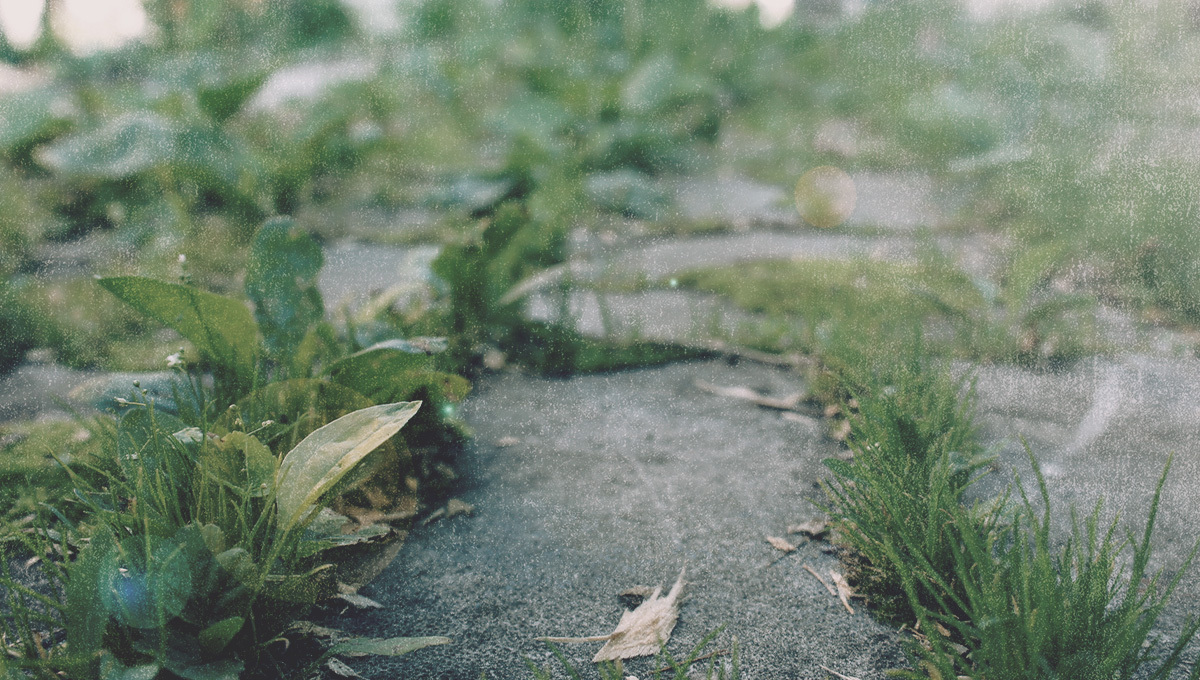My husband and I recently bought our first home. Through the neighborhood grapevine, we’ve learned that the original owners were avid gardeners. But when they passed away and their family inherited the house, they did next to nothing with the yard. We think our yard was neglected for about three years before we moved in. And it’s totally obvious. Whatever plants were intentionally there before have been choked out by poison ivy and other weeds.
I don’t think the previous owners set out to destroy their (now our) yard. But whether out of busyness or laziness or whatever it was – overtime, they stopped plucking the weeds. They chose to ignore them instead.
Sometimes, we do the same thing with sin.
At least, I know I’ve done this before, so tell me I’m not alone.
There’s some sin I’m quick to fight, confess, or ask for accountability in. And then there’s some sin that, if it were up to me, I’d ignore entirely. Push it way down, pretend it doesn’t exist, and maybe it won’t.
But there’s a verse in Ephesians that challenges me in this. It says:
Have nothing to do with the fruitless deeds of darkness, but rather expose them. (Ephesians 5:11)
So first, Paul says to have nothing to do with sin (“fruitless deeds of darkness”), but then he tells us to expose sin. To expose something means to reveal its true nature.
If we’re supposed to reveal sin’s true nature, we must be committed to the reality of sin in our lives. We can’t just ignore it or wish it away. Much like yardwork, ignoring the weeds just makes them bigger and stronger.
Instead of ignoring our sin or struggles, Jesus invites us to practice honesty – with ourselves, with God, and with others.
Honesty with Ourselves
If we say that we have no sin, we deceive ourselves, and the truth is not in us. (1 John 1:8)
Are you aware of the sin in your life? Do you know where the weeds are, the ones you’re tempted to ignore? Part of the Christian life requires us to be committed to the reality we find ourselves in. Otherwise, we deceive ourselves.
If this doesn’t come naturally to you, try setting aside time regularly to reflect on your day or week. Write your reflections in a journal or talk out loud next time you’re in the car. These tricks help your brain not to wander as much.
Honesty with God
As part of your regular time with God, include time to be honest with him. Name the desires and struggles that are shaping you away from him. Invite Jesus into that struggle and sin instead of ignoring it.
Scripture says that when you do this, you’ll experience his faithfulness and forgiveness.
If we confess our sins, he is faithful and just and will forgive us our sins and purify us from all unrighteousness. (1 John 1:9)
Looking for a place to start? Try slowly reading through Psalm 51, inserting your own words and prayers as you read.
Honesty with Others
Don’t just stop at being honest with God, be honest with the people around you. For some of you, this might be the hardest part.
But practicing honesty with others takes the truths we read about in Scripture and makes them more than just words on a page. When we push to be honest with others, we tangibly live out our faith the way Jesus calls us to.
Therefore, confess your sins to each other and pray for each other so that you may be healed. (James 5:16)
Don’t miss that – God can use the people around you to bring healing into your life. But it won’t happen through ignoring the weeds.
Something that’s been helpful for me over the years is to let a few of my close friends in on my current struggles. I feed them a couple questions I want them to ask me occasionally.
Questions like: How has (a particular struggle) been going? How has (busyness, a new relationship, job, etc.) been affecting your relationship with Jesus?
For you were once darkness, but now you are light in the Lord. Live as children of light (for the fruit of the light consists in all goodness, righteousness and truth). (Ephesians 5:8-9)
We can practice honesty, because in Jesus, we are no longer defined by our sin or the struggles in our life.
Sure, you can use this freedom to continue to ignore the reality of sin in your life. Just like with yard work, pretending the weeds aren’t there is probably easier in the short-term.
But long-term, I think ignoring our sin makes us miss out on a whole lot of goodness, righteousness, and truth. And that can only come from living as children of light – living as if the truth were true.
Confronting sin in your life is a process that happens over time, not overnight. Read about how making small changes, rules, for yourself can lead to flourishing and spiritual growth.


